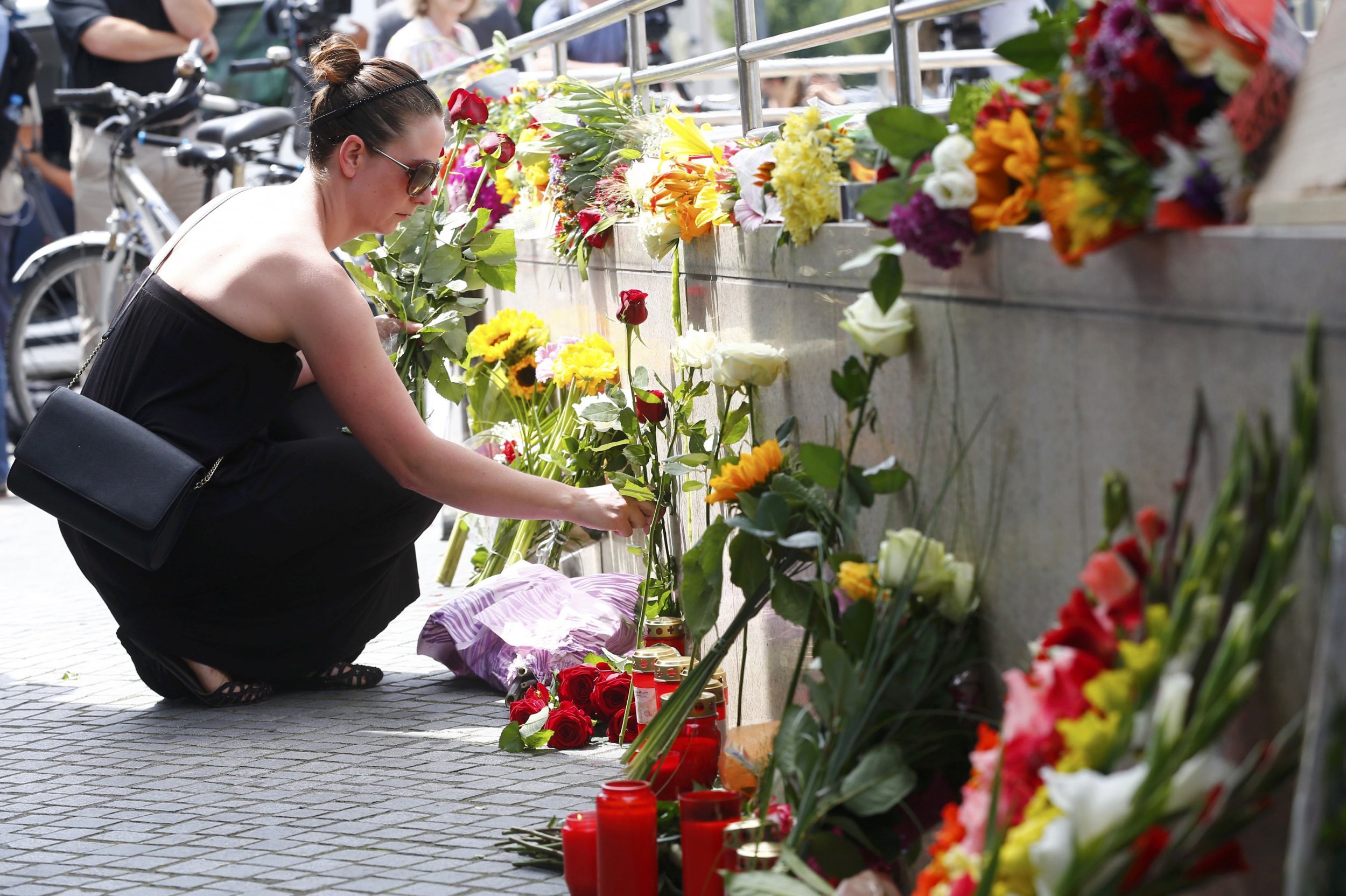
Senior German officials called on Sunday for a review of Germany's already strict gun laws after Friday's deadly shooting in Munich that claimed the lives of nine people and the gunman, a deranged 18-year-old who was obsessed with mass killings.
"Gun control is an important issue. We must continue to do all we can to limit and strictly control access to deadly weapons," German Vice Chancellor Sigmar Gabriel, leader of the center-left Social Democrats, told Funke Mediengruppe, which owns a series of German newspapers.
Gabriel said German authorities were investigating how the German-Iranian dual national had gained illegal access to the weapon—identified by police as a 9mm Glock 17 pistol, the most widely used law enforcement weapon worldwide—despite signs that he had significant psychological issues.
"Clearly we will have to have a discussion in the near future about whether the current gun control laws are sufficient," said German lawmaker Stephan Mayer, a spokesman for Chancellor Angela Merkel's ruling conservatives in parliament.
"The biggest priority is to combat the illegal arms trade since that could also reduce crime and terrorism," he said in a statement on Sunday.
The gunman, named by German media as Ali David Sonboly, opened fire near a busy shopping mall on Friday evening, killing nine and wounding 35 more, before turning the gun on himself as police approached.
The Munich shooting was the third act of violence against civilians in Western Europe—and the second in southern Germany—in eight days. Officials said there were no signs of any links in this case to Islamist extremist groups.
German Interior Minister Thomas de Maiziere, also a member of Merkel's Christian Democrats, told the Bild am Sonntag newspaper in an interview that he planned to review German gun laws after the attack, and seek improvements where needed.
De Maiziere said German gun laws were already very strict, which he considered appropriate, and it was critical to understand how the shooter gained access to the pistol used.
"Then we have to evaluate very carefully if and where further legal changes are needed," he said in an interview published on Sunday.
Mayer and De Maiziere also cited the current debate within the European Union about a package of reforms that would tighten gun controls within the bloc and make it easier to trace the origin of guns purchased legally.
The proposed changes, which must still be enacted by EU member states, would also set more stringent rules for deactivating previously fully functioning guns and making them available for sale as so-called decorations.
Member states have different criteria for what does and does not constitute a deactivated weapon, a legal loophole exploited by criminals to import weapons that have only been superficially modified to appear non-functioning.
The Glock 17 used by the Munich gunman, which police said had its serial number filed away, was such a "reactivated" weapon from Slovakia, the Sueddeutsche Zeitung daily reported on Sunday, citing law enforcement sources.
Sonboly obtained the gun on the Internet, it said.
Uncommon Knowledge
Newsweek is committed to challenging conventional wisdom and finding connections in the search for common ground.
Newsweek is committed to challenging conventional wisdom and finding connections in the search for common ground.
About the writer
To read how Newsweek uses AI as a newsroom tool, Click here.








